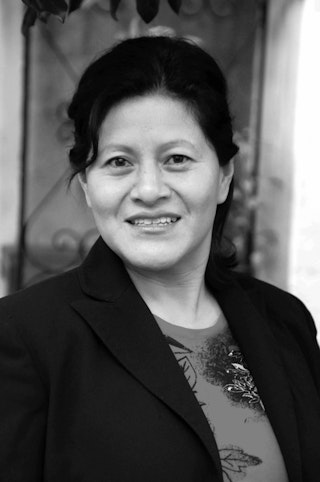
Librada Paz
Through her work with the Rural and Migrant Ministry, Librada Paz has played a key role in the historic advancement for the rights of farm workers.
In 2003, when Paz and her colleagues at the RMM organized a march throughout New York State, they not only galvanized farm workers, but brought attention to what had been an invisible reality. “It was very powerful,” she said. “People didn’t know that migrant people were around, nearby, with no rights.”
Paz’s effectiveness in reaching out to farm workers is partly due to her deep understanding of issues facing the community. At age fifteen, Paz, who speaks the indigenous Mixtec language along with Spanish and English, began translating for fellow farm workers. For the same reason that they are vulnerable to exploitation, farm workers face daunting barriers to activism. Without legal protections, they may be fired for protesting, lobbying, or even taking a sick day. Yet, Paz says that those who can manage to attend a march or a visit to the capital find it both empowering and enjoyable. “It is hard for them to go out, for them it feels like they went on a vacation—a nice day. Anything just to leave where you work, on a weekend, a night, just to explore. They say, ‘This is so much fun, a learning experience.’ All of them have been saying that. The question is always how not to lose my job.”
In 2013, New York State nearly passed the Farm Workers Fair Labor Practices Act, which would have ended discrimination against agricultural workers and extended them basic labor rights. The bill provided collective bargaining rights, overtime pay, and the right to a day off each week. Uphill legal battles like this show why Robert F. Kennedy Human Rights must continue to support local partners such as Librada in their struggle to repeal discriminatory and exploitative laws in all their forms.